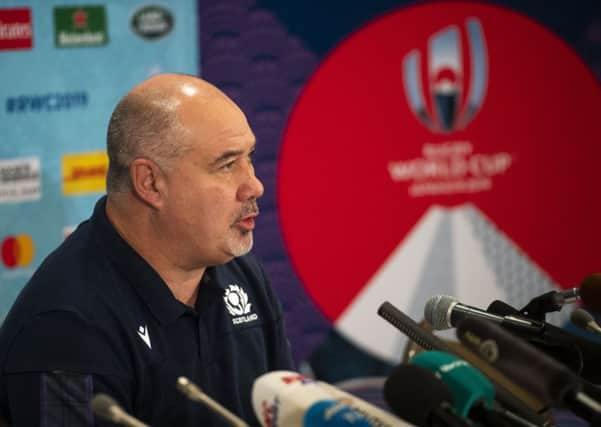Allan Massie: Wiser for the SRU to pay fine and issue polite apology


Nevertheless it’s in nobody’s interest that the argument continues, becoming ever more acrimonious. It might be wise for the SRU to pay the fine (which is intended to go to a charity) and have their lawyers issue a polite and modest apology. It was after all rash, and in the circumstances of the typhoon and natural disaster about to hit Japan, unwise to say anything publicly about possible legal action if RWC refused the quite reasonable suggestion that the match might be moved from the Sunday to Monday, even if the regulations agreed to by all the participants provided for the possibility of a change of venue but not of date. It’s probably of little value to point out now that this regulation was daft if only because it’s evidently easier and less disruptive to change a date than a venue. (The same tickets can be used and the same crowd accommodated more easily on a different day than at another place.)
It is also worth remarking that nothing that Mr Dodson said seems to have offended the host nation. Japan were as eager as Scotland for the match to be played and relations between the two unions are good. Japan have happily accepted an invitation to play Scotland at Murrayfield in November next year.
Advertisement
Hide AdAdvertisement
Hide AdThe charge against the SRU and Mr Dodson is of having “brought rugby into disrepute”, and RWC’s Disputes Committee, made up of two QCs , one from England, one from New Zealand, and a Senior Counsel from Australia, has declared that the SRU “lowered the esteem of the game” with comments that were “wrong , inaccurate and misleading”. They showed “extreme insensitivity”.
While the SRU might be unwise to argue the case further, a mere hack may point out that if anyone might be judged to have brought the game into disrepute it is World Rugby itself. Its contingency planning was for what might happen if there was a typhoon, as was likely in the typhoon season, was quite simply lousy. When the typhoon threatened, World Rugby panicked, cancelling matches when it would have been possible and sensible to postpone them for a couple of days.
Cancelling the France-England match made little difference since both teams had qualified for the quarter-final (though it might have meant they played different opponents there). Cancelling the New Zealand-Italy game might theoretically have made a difference. Italy were keen for the match to be played, and their great captain Sergio Parisse didn’t hesitate to say that he was sure that the match would have been re-arranged if New Zealand had needed a victory to reach the quarter-final. Interestingly, World Rugby has not accused Parisse of bringing the game into disrepute. It would have been daft to do so, but then its inflated sense of self-importance does make it look more than a little daft.
The Disputes Committee, somewhat pompously, finds that Mr Dodson’s statements were “part of a campaign wrongly played out in public, designed to put pressure on RWC to have the match played when it was properly and understandably endeavouring to plan for and deal with the consequences of a substantial imminent natural disaster”.
This sounds like flannel. It was the Japanese authorities – police, firemen, doctors, nurses, other medical staff, engineers, construction workers etc – who were planning for, and dealing with, the consequences of the typhoon; and by all accounts they did so admirably, with exemplary efficiency. The RWC’s role seems to have been little more than deciding whether matches could be played, and if so where, but certainly not when, because they had already decided that dates were immutable.
Mr Dodson and the SRU disturbed and annoyed them by highlighting their intransigence, and by implication their lack of foresight. Acting on the principle “Never apologise, never explain”, World Rugby clearly believes that the best way to divert attention from its own failings is to go on the attack; and Mr Dodson and the SRU were the obvious targets. A bit shabby.
In truth the charge “bringing the game into disrepute” is vague and loose. It’s a statement of opinion, not of fact, therefore capable of being applied to almost anything a sport’s governing body finds offensive. Since it’s only a matter of opinion, there is no defence against it. Consequently it’s as reasonable to describe what appears to be a vendetta against Mr Dodson and the SRU as something that brings the game into disrepute as to find them guilty of this imagined offence.
Nevertheless, the sooner this grossly inflated affair is put to rest, the better. Which is why I think the SRU should pay the fine – perhaps making the cheque out to the named charity? – and very mildly say “sorry”.